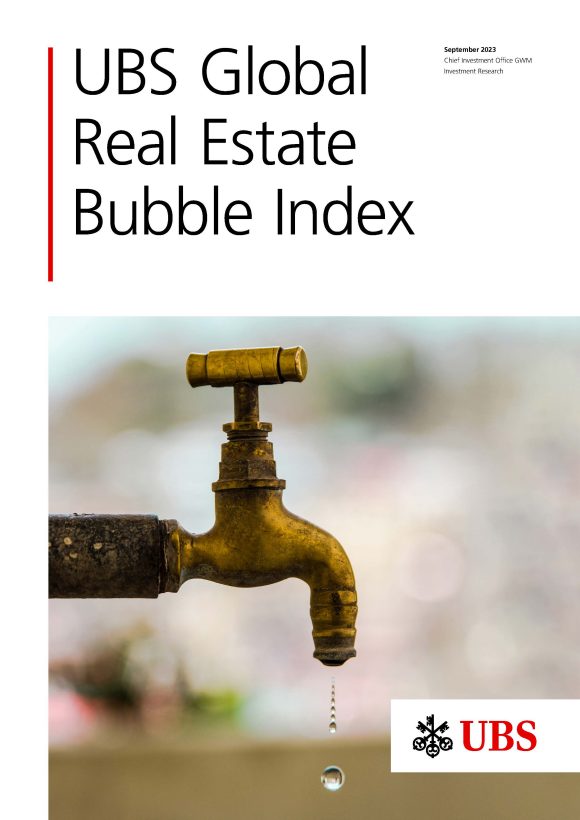UBS Global Real Estate Bubble Index 2023
Find out in which cities property prices and valuations have fallen the most, where (further) corrections are imminent, and where price increases are continuing or could happen in the future.

![]()
header.search.error
Find out in which cities property prices and valuations have fallen the most, where (further) corrections are imminent, and where price increases are continuing or could happen in the future.

Low financing costs have been the lifeblood of global housing markets over the past decade, driving home prices to dizzying heights. However, the abrupt end of the low interest rate environment has shaken the house of cards. On average of all cities, within the past year, inflation-adjusted home prices have seen the sharpest drop since the global financial crisis in 2008. Cities that have been classified in the bubble risk zone at least once in the past three years recorded an even stronger average price decline. However, the impact of higher interest rates has varied markedly across cities, with the price correction depending on several other factors as well.
Where home financing was already at the limit of affordability with low interest rates, higher interest rates almost inevitably led to a slump in local demand. If a market was characterized by a significant decoupling of purchase prices from rents, the rise in mortgage rates shifted demand back to the rental market. In housing markets that were predominantly short-term financed, owner households immediately felt the higher financing costs and were forced to accept lower prices when selling. Where buy-to-let became popular during the low interest rate period, fire sales due to higher interest rates and slumping profitability intensified a correction. In cities where several of these factors came together at the same time—as in Toronto, Frankfurt, and Stockholm, for example—re-pricing took place all the faster and more severely.
With the UBS Global Real Estate Bubble Index we keep you up-to-date on the latest developments across global urban housing markets.
With housing prices sliding for seven straight years, the market for owner-occupied housing in Dubai started recovering in 2021. In the last four quarters, housing prices increased even by a double-digit rate. Given strong income growth and a red-hot rental market, with rental growth even surpassing owner-occupied price growth, we see the market as fairly valued. While Dubai is highly cyclical and prone to overbuilding, price momentum should remain strong in the coming quarters.
Buying owner-occupied real estate in Zurich now costs over 50% more than a decade ago in nominal terms. An increasing number of high-income earners and ultra-low interest rates supported rising prices. The price level has not yet adapted to increased financing costs. The market is in the bubble risk zone.
Housing prices in Miami continued to increase faster than the nationwide average. The price level has more than doubled over the last 10 years. Miami is the main beneficiary of the increased attractivity of sun belt cities in the US. Demand is bolstered by continued population influx and the still relatively low absolute price level compared to incomes. Having said that, sales numbers have dropped and the upward pressure on prices has eased as mortgage rates went up.

Want more insights?
The full Global Real Estate Bubble Index 2023 is available to download